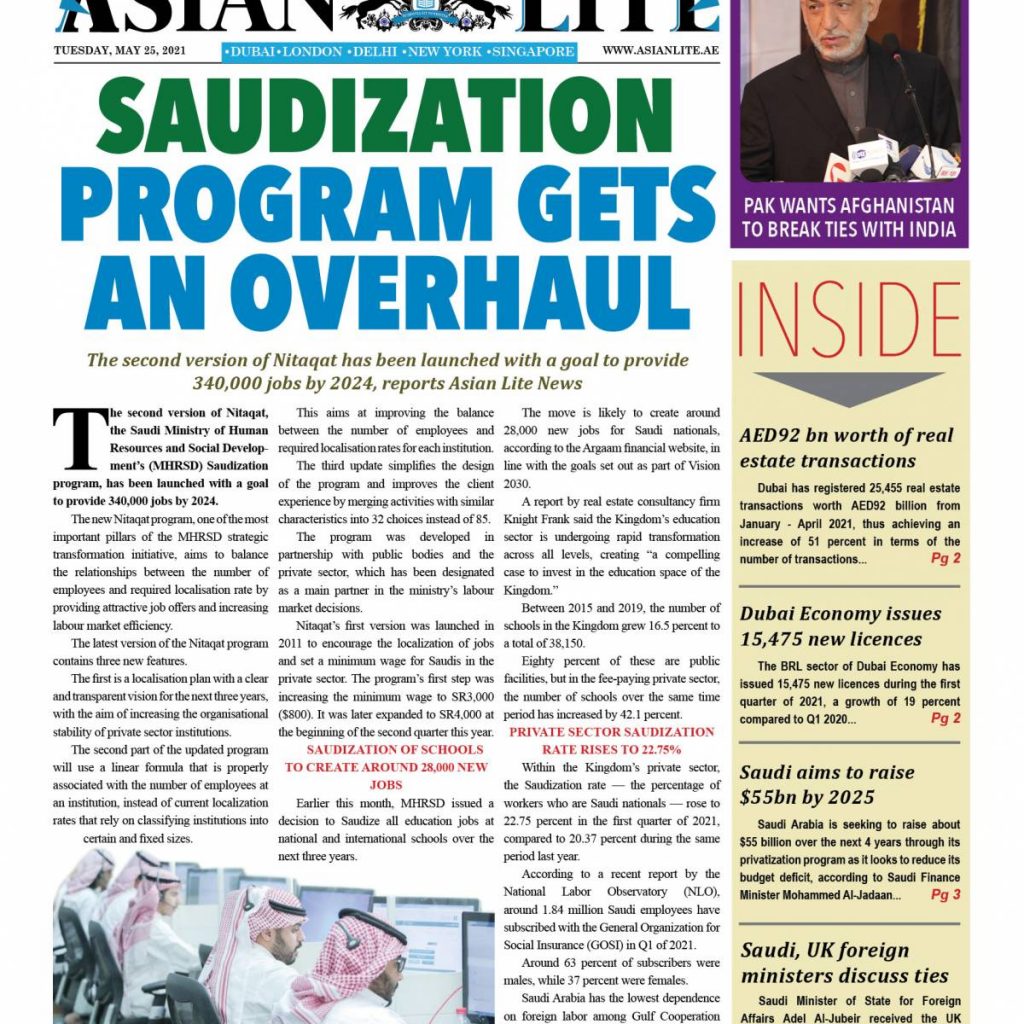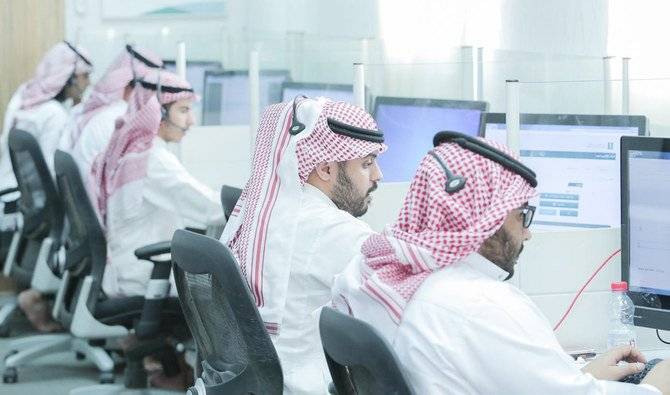The second version of Nitaqat has been launched with a goal to provide 340,000 jobs by 2024, reports Asian Lite News
The second version of Nitaqat, the Saudi Ministry of Human Resources and Social Development’s (MHRSD) Saudization program, has been launched with a goal to provide 340,000 jobs by 2024.
The new Nitaqat program, one of the most important pillars of the MHRSD strategic transformation initiative, aims to balance the relationships between the number of employees and required localisation rate by providing attractive job offers and increasing labour market efficiency.
The latest version of the Nitaqat program contains three new features.
The first is a localisation plan with a clear and transparent vision for the next three years, with the aim of increasing the organisational stability of private sector institutions.

The second part of the updated program will use a linear formula that is properly associated with the number of employees at an institution, instead of current localization rates that rely on classifying institutions into certain and fixed sizes.
This aims at improving the balance between the number of employees and required localisation rates for each institution.
The third update simplifies the design of the program and improves the client experience by merging activities with similar characteristics into 32 choices instead of 85.
The program was developed in partnership with public bodies and the private sector, which has been designated as a main partner in the ministry’s labour market decisions.
Nitaqat’s first version was launched in 2011 to encourage the localization of jobs and set a minimum wage for Saudis in the private sector. The program’s first step was increasing the minimum wage to SR3,000 ($800). It was later expanded to SR4,000 at the beginning of the second quarter this year.
Saudization of schools to create around 28,000 new jobs
Earlier this month, MHRSD issued a decision to Saudize all education jobs at national and international schools over the next three years.
The move is likely to create around 28,000 new jobs for Saudi nationals, according to the Argaam financial website, in line with the goals set out as part of Vision 2030.
A report by real estate consultancy firm Knight Frank said the Kingdom’s education sector is undergoing rapid transformation across all levels, creating “a compelling case to invest in the education space of the Kingdom.”
Between 2015 and 2019, the number of schools in the Kingdom grew 16.5 percent to a total of 38,150. Eighty percent of these are public facilities, but in the fee-paying private sector, the number of schools over the same time period has increased by 42.1 percent.

Private sector Saudization rate rises to 22.75%
Within the Kingdom’s private sector, the Saudization rate — the percentage of workers who are Saudi nationals — rose to 22.75 percent in the first quarter of 2021, compared to 20.37 percent during the same period last year.
According to a recent report by the National Labor Observatory (NLO), around 1.84 million Saudi employees have subscribed with the General Organization for Social Insurance (GOSI) in Q1 of 2021.
Around 63 percent of subscribers were males, while 37 percent were females.
Saudi Arabia has the lowest dependence on foreign labor among Gulf Cooperation Council countries at around 77 percent, while Qatar has the highest, at about 94 percent, according to data from S&P Ratings.









